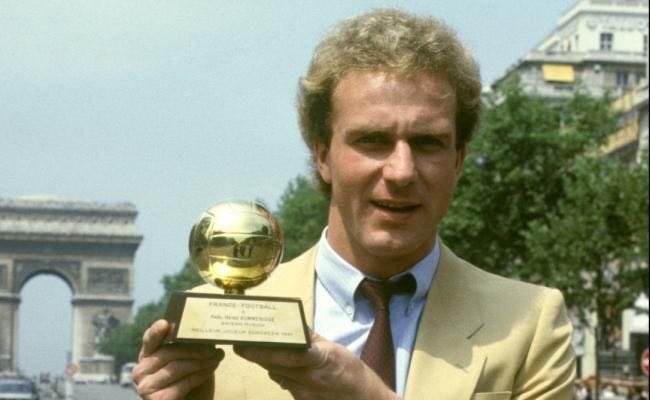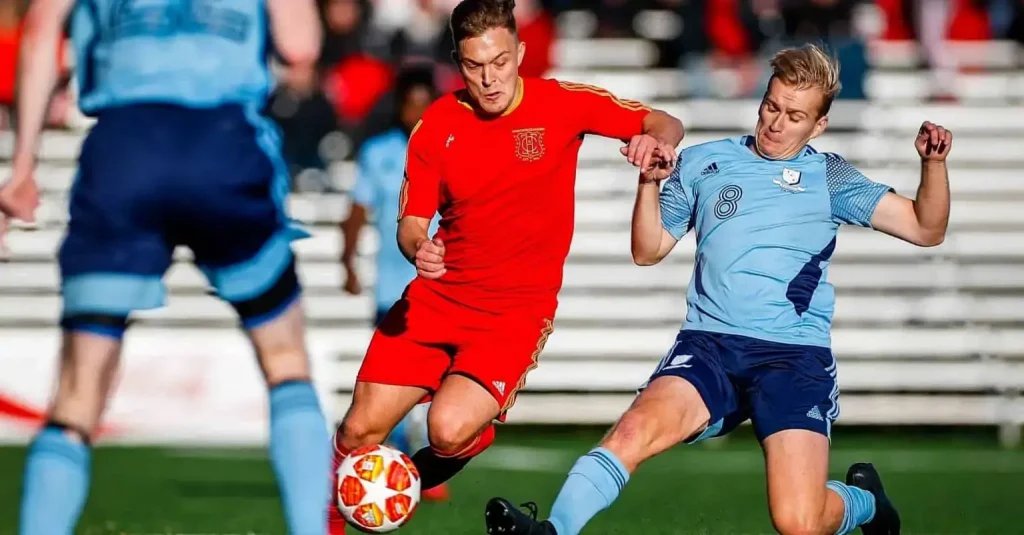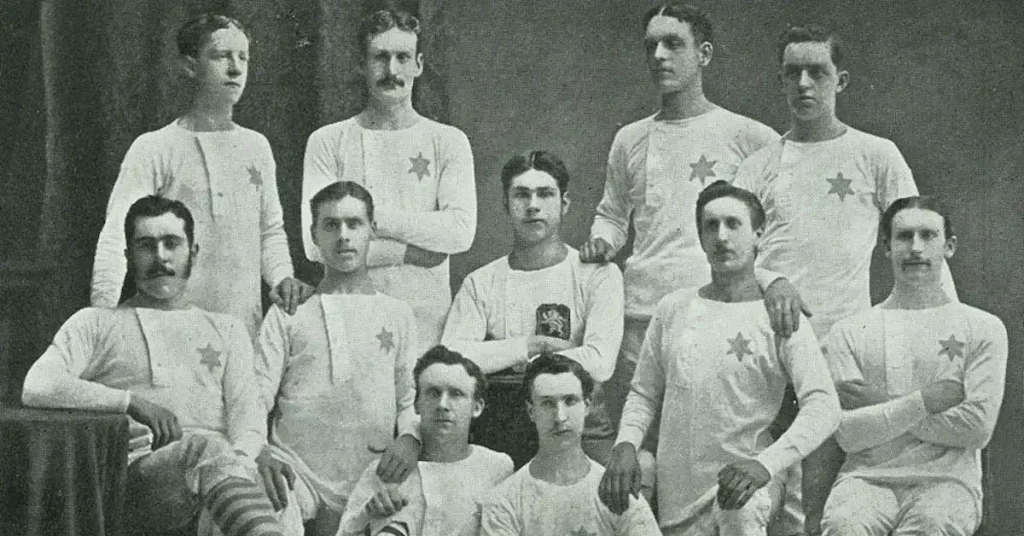In the year 1980, the football world witnessed the crowning of a true legend, as Karl-Heinz Rummenigge claimed the Ballon d’Or, solidifying his status as one of the sport’s greats.
Karl-Heinz Rummenigge, born on September 25, 1955, in Lippstadt, West Germany, was a forward renowned for his sublime skills, remarkable pace, and astute understanding of the game.
One of the most talented attacking players of his generation, Rummenigge was often lauded as a highly versatile forward, capable of playing as a second striker, winger, or flat-out centre forward.
His main strengths were his pace, dribbling, heading and goalscoring ability, from both close range and from outside the box.
His journey to football stardom began at SV Lippstadt 08, where he honed his skills in the club’s youth academy before signing for Bayern Munich in 1974, where he went on to make 21 appearances in his first season at the German giants, making his debut aged 18.
Rummenigge’s rise was meteoric; he quickly became a vital asset to the team, earning a reputation as a promising striker and apt finisher. It wasn’t until 1980 however, that he truly earned a reputation as an elite striker.

The 1980 Season
The year 1980 was a watershed period in Rummenigge’s career. Playing a pivotal role in Bayern Munich’s domestic and international campaigns, he showcased his prowess on both fronts.
The Bundesliga title was secured, largely due to Rummenigge’s prolific goal-scoring form, which saw him netting 26 goals during the season.
Alongside his League exploits, he’d take home a Euro 1980 winners medal. Starting every game, only being subbed off in a 0-0 draw against Greece, he was undoubtedly a key player in the side, chipping in with a goal and an assist across Germany’s 4 games, his assist setting up an 88th-minute winner in the final vs Belgium.
Further still, he’d put on exemplary performances in that season’s UEFA Cup, helping his Bayern Munich side to the final with 5 goals and 2 assists in 10 games.
Munich fought through 4 gruelling 2-leg rounds to reach the final, with Rummenigge having a huge influence in every tie.
It would end in catastrophe for Munich that year however, despite winning the first leg of the final 2-0 against Eintracht Frankfurt, Bayern would collapse after an 87th minute Frankfurt equaliser pushed the second leg of the final to extra time.
Bayern were shell-shocked by the late comeback and ended up conceding 3 more in extra time, losing 5-1 on the night and 5-3 on aggregate.
Individual Recognition – The Ballon d’Or
Rummenigge’s exceptional performances during the 1980 season captured the attention of football enthusiasts and experts worldwide. His combination of individual brilliance and team success made him a prime candidate for the coveted Ballon d’Or.
His partner in crime Paul Breitner finished 2nd in the voting, which was no surprise given the new nickname that was quickly gathering popularity for Bayern – FC Breitnigge.
In December 1980, the football community celebrated Rummenigge’s crowning moment as he was announced as the winner of the Ballon d’Or.
His remarkable contributions both domestically and on the European stage were the cornerstones of his victory. Rummenigge became only the second German player to win the award, following in the footsteps of Gerd Müller.
Ballon d’Or Top 20
| Rank | Name | Club(s) | Nationality | Points |
|---|---|---|---|---|
| 1 | Karl-Heinz Rummenigge | Bayern Munich (West Germany) | West Germany | 122 |
| 2 | Bernd Schuster | Barcelona (Spain) | West Germany | 34 |
| 3 | Michel Platini | Saint-Étienne (France) | France | 33 |
| 4 | Wilfried Van Moer | Beveren (Belgium) | Belgium | 27 |
| 5 | Jan Ceulemans | Club Brugge (Belgium) | Belgium | 20 |
| 6 | Horst Hrubesch | Hamburger SV (West Germany) | West Germany | 18 |
| 7 | Herbert Prohaska | Internazionale (Italy) | Austria | 14 |
| 8 | Hansi Müller | VfB Stuttgart (West Germany) | West Germany | 11 |
| Liam Brady | Juventus (Italy) | Republic of Ireland | 11 | |
| 10 | Manfred Kaltz | Hamburger SV (West Germany) | West Germany | 10 |
| 11 | Erwin Vandenbergh | Lierse (Belgium) | Belgium | 9 |
| Luis Arconada | Real Sociedad (Spain) | Spain | 9 | |
| Dino Zoff | Juventus (Italy) | Italy | 9 | |
| 14 | Kenny Dalglish | Liverpool (England) | Scotland | 5 |
| Bruno Pezzey | Eintracht Frankfurt (West Germany) | Austria | 5 | |
| 16 | Terry McDermott | Liverpool (England) | England | 4 |
| Viv Anderson | Nottingham Forest (England) | England | 4 | |
| Ruud Krol | Napoli (Italy) | Netherlands | 4 | |
| Francesco Graziani | Torino (Italy) | Italy | 4 | |
| 20 | Ladislav Vízek | Dukla Prague (Czechoslovakia) | Czechoslovakia | 3 |
| Manuel Bento | Benfica (Portugal) | Portugal | 3 |
Trivia
All of the top 10 goal scorers in the Bundesliga 1980 season were German.
Among the top scorers was Dietar Muller, who is one of an incredibly select few players to score 6 goals in one game in a professional match.
Ironically, on the day of this Muller feat, camera operators across Germany were on strike, meaning there is no footage of the accomplishment. But it is officially recognised as the Bundesliga’s only double hat trick.




